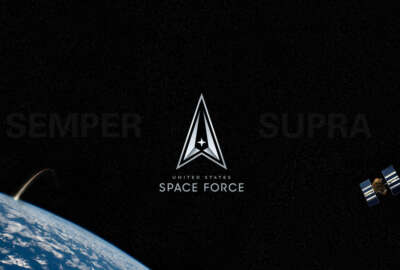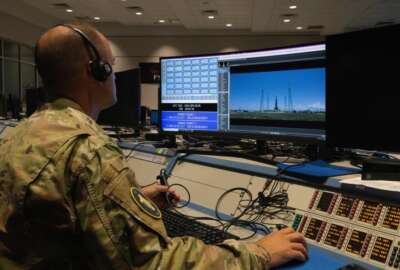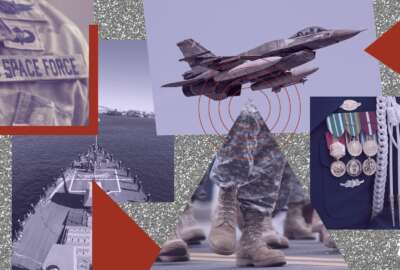Space Force focuses on growing operational workforce over acquisition community
"We fear a divide that elevates operators at the detriment to other core functions of the Space Force will have negative impacts," the HASC leaders wrote.
The House Armed Services Committee leaders say the Space Force’s current emphasis on its operational workforce could negatively impact the development of a healthy acquisition, training, and testing community in the future.
In a Tuesday letter to Chief of Space Operations Gen. Chance Saltzman, obtained by Federal News Network, Rep. Mike Rogers, (R.-Ala.), and Rep. Adam Smith, (D.-Wash.), said the service may be too focused on its operators and not prioritizing other professionals within the service.
“We fear a divide that elevates operators at the detriment to other core functions of the Space Force will have negative impacts, potentially not immediately, but as we look to 2030 and beyond,” the lawmakers wrote.
The lawmakers said Saltzman’s remarks from the Spacepower conference that happened last week noticeably lacked detail about the service’s acquisition, training, and testing, which “has raised some questions as to the previous focus on maintaining alignment across these areas.”
“We believe this is needed to not only be successful in developing the next generation space warfighter but also to ensure that the service will have the skillset and workforce to design, develop, and acquire systems that Guardians are going to need in the future,” Rogers and Smith said in the letter.
“Looking back just one year ago to your remarks given at the Spacepower Conference, you clearly articulated the need for tighter coupling between the operational, training, testing, and acquisition communities within the service.”
Meanwhile, the service has been getting after aligning its operational and acquisition communities through a concept known as “integrated mission deltas.” The new model allows the Space Force to bring space and cyber operators, acquisition specialists and program managers under one roof rather than separating those functions into different commands.
Last year, Saltzman launched two integrated mission delta provisional units — one focused on electromagnetic warfare and another one on positioning, navigation, and timing. Earlier this year, the service broadened the program to include space domain awareness and missile warning and tracking.
Given their concerns around the service’s acquisition workforce, the lawmakers said they want to know how the integrated mission deltas will be adequately staffed with acquisition personnel in the future.
In their letter, the lawmakers also asked Saltzman to provide more information about the current and future training and development courses or programs available to the acquisition community and the service’s recruiting, training and retention efforts and career paths for acquisition professionals. In addition, they asked Saltzman to provide the percentage breakdown of how many officers within each rank hold specific specialties, including operations, engineering, and acquisition.
Rogers’ remarks at the Center for Strategic and International Studies Space Force’s fifth birthday event on Tuesday echoed the sentiment expressed in the letter to Saltzman about the service’s emphasis on the operational community at the expense of other professionals.
“I don’t want you to get me wrong. I agree that growing and building space operators is critically important, but the development of acquisition and other professionals is just as important. After all, what are these operators going to operate? If acquirers aren’t acquiring the newest and latest technology,” said Rogers.
“Operators, acquisition, intel and cyber professionals — all must be on equal footing. The future of the Space Force will depend on its ability to both nurture these unique specialties and tribes while also creating a unified fighting force.”
Copyright © 2024 Federal News Network. All rights reserved. This website is not intended for users located within the European Economic Area.






